Cleanest States in Nigeria: The adage ‘cleanliness is next to godliness’ is a well known adage but its impact on an environment is not emphasized enough. Not only does it impact the health of the citizens but the cleanliness of a city can directly affect tourism, reputation and overall economy of a state. This is because there are several investments that cannot occur in a dirty environment.
Sadly, Nigeria still has a long way to go in its quest for all round cleanliness. There were seven states that met the criteria according to the National Technical Study Group for Nation’s Cleanliness Performance Index Ratings, which gave them scores of above 15% on a scale of 30% for the indications of the cleanliness of the streets and roads. However the remaining states did not meet the required standard and can thus be labelled unsanitary.
The report questioned why Nigeria, which has a population estimated at 270 million, surpassed China, which has a population of 1.6 billion, to claim the top spot for open defecation, surpassing India, which has a population of 1.4 billion (or 17.7% of the world’s total population). Over 172.7 million Nigerians, up from 170 million in 2020, are estimated to be living in dirty environments in 202.
The aim of this article however is to examine those states that the requisite and examine the policies that brought them to the fore front for this admirable trait, to serve as a reference for other states to take the necessary steps. Thus below are the cleanest states in Nigeria:
Recommended: Most Competitive Universities In Nigeria
Top 7 Nigeria’s Cleanest State 2024
7. Bauchi State: Sanitation’s primary goal is to protect human health by fostering a clean, healthy environment that specifically combats disease transmission via the fecal-oral pathway. Cholera, hepatitis, polio, trachoma, schistosomiasis, and diarrhea are just a few examples of the illnesses that can lead to malnutrition and stunted growth in children.
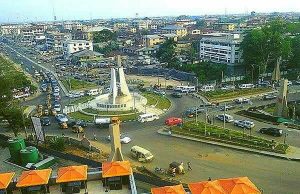
Yes, notably in Bauchi state, sanitation has turned into a custom in certain other parts of this country. Every month’s last Saturday has been designated as a “Sanitation Day,” during which time entry is prohibited from 8am to 10am. Every citizen is encouraged to come out an clean their environments, dispose trash and keep the state clean.
Not resting on their laurels, In order to ensure the smooth passage of the bills establishing the Bauchi Water Services Regulatory Commission, Bauchi Small Town Water and Sanitation Agency, and Bauchi Rural Water Supply and Sanitation Agency, civil society organizations and the media have collaborated.
According to the Daily Independent, the bill’s goals are to provide residents of urban and rural service areas with safe, sufficient, and reasonably priced water supply services, as well as sewerage and water-waste management services by way of the installation of sewers for the containment, conveyance, treatment, and disposal of sewage and wastewater produced by customers within its area of operation, as well as other services. All of these has elevated the state to the seventh position.
Also see: Most Difficult Exams in the World
6. Ebonyi State: Ebonyi State joins the list at sixth. The government’s dedication to preserving a clean environment is reflected in this accomplishment. To maintain a clean environment in its markets, streets, and public spaces, the state has put in place a number of initiatives and programs.
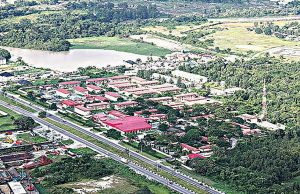
The “Clean Ebonyi” program, which urges locals to properly dispose of rubbish, has been especially effective. The state also recommenced the monthly sanitation program to ensure that once a month citizens come out to dump their refuse and clean their surroundings. The people’s involvement in making sure the state remained one of the cleanest in the nation led to the statewide clean up even though the state government had started a large evacuation of the garbage dumps.
Mr. Chukwu, the state’s commissioner for the environment, stated that in order to maintain a cleaner environment, the state government will enforce the emergency removal of trash and enforce its disposal at locations authorized by the government.
Recommended: How To Start A Law Firm In California: A Comprehensive Guide to Legal Requirements
5. Kaduna State: Once upon a time Kaduna was one of the states notorious for unsanitary environments with issues like open defecation being common. However the state has made giant strides in changing the narrative.
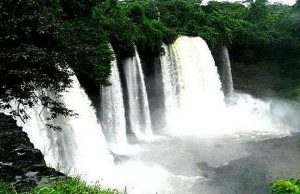
The state has been collaborating with NGOs to encourage citizens to keep their environment clean. Mohammed Yahaya, Commander of the Safety Awareness and Environmental Support Initiative (SAESI), asked the shopkeepers in his contribution to start clearing the market’s drains as well. Every time it rains, we worry about the gutters getting clogged up with residents’ activities, which is a major contributor to flooding. “That is why we have presented this project to the traders, so that they will make it a priority to maintain a clean environment every day as traders,” the organization said.
The Center for Water and Environment Development (CWED), according to Doris Zakama, program manager, is also actively involved in advocacy efforts to improve cleanliness in markets.
4. Lagos State: As the biggest state in Nigeria by population and the business capital due to its port and massive trades, the state has always taken the issue of sanitation seriously to prevent an outbreak of diseases and ensure productivity.
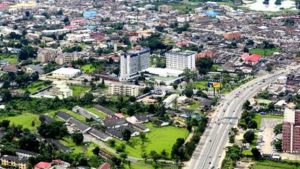
A government organization called the Lagos State Environmental Sanitation Corps (LAGESC) is in charge of maintaining a clean environment in Lagos. LAGESC tackles pollution, illicit dumping of refuse and road side trading. The state also carries out its own internal review rewarding the cleanest local governments in the state.
Recommended: How To Start A Law Firm In South Africa: A Comprehensive Guide to Legal Requirements
3. Cross River State: Cross River State is ranked third among Nigeria’s cleanest states. The state is well-known for its lush scenery, which include the well-known Obudu Mountain Resort.
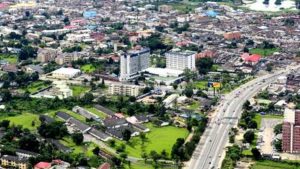
Cross River has prioritized environmental protection and waste control in order to preserve its natural beauty. Initiatives like as tree planting programs and systematic rubbish disposal have helped to keep the state clean. It is no surprise as constant sanitation is important to the state’s sanitation efforts.
2. Federal Capital Territory (FCT): As the capital of the country and its face to the rest of the world, cleanliness is important and as always been taken seriously. However not resting on their laurels, the state reintroduced plans to reinstate monthly sanitation as part of initiatives to maintain Abuja clean.

This is in addition to the constant evacuation of refuse around the federal capital.
Also see: Dirtiest states in Nigeria
1. Akwa Ibom State: Akwa Ibom State is ranked first on our list. It has held this position for five consecutive years. Akwa Ibom, with its beautiful beaches and natural reserves, lays a significant focus on environmental protection.

The state government has introduced recycling programs and garbage separation initiatives, making it easier for residents to contribute to environmental sustainability. Beach cleanup events are also popular in Akwa Ibom, highlighting the need of clean shorelines.
Recommended: Differences Between a Law and a Policy
Conclusion
The states on this list have made sanitation an integral part of their policies taking steps like awareness programs for citizens, monthly sanitation efforts and collaborating with private organisations for new strategies to protect the environment. However more needs to be done. There are more unsanitary states than there are sanitary ones. This must change; the Federal Government must move to ensure that other states take the same steps as the clean ones. If Nigeria wants to take her rightful place on the world stage she must appear befitting of such a position.

Edeh Samuel Chukwuemeka, ACMC, is a lawyer and a certified mediator/conciliator in Nigeria. He is also a developer with knowledge in various programming languages. Samuel is determined to leverage his skills in technology, SEO, and legal practice to revolutionize the legal profession worldwide by creating web and mobile applications that simplify legal research. Sam is also passionate about educating and providing valuable information to people.